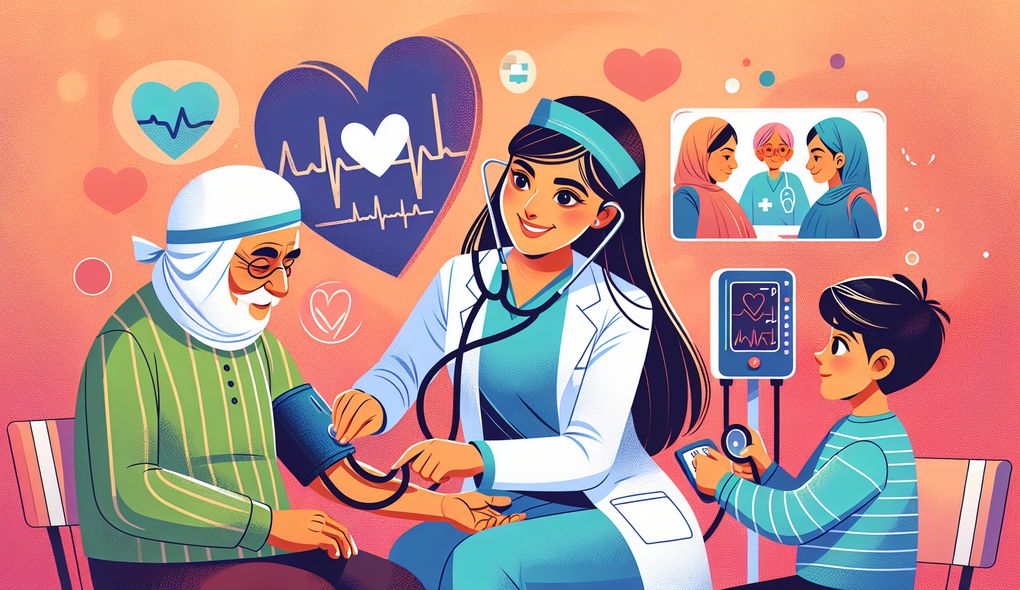Tell us about a time when you had to make an informed medical decision using critical thinking and problem-solving skills.
INTERMEDIATE LEVEL

Sample answer to the question:
One time when I had to make an informed medical decision using critical thinking and problem-solving skills was when I had a patient who presented with multiple symptoms that could indicate different underlying conditions. Through my assessment and careful consideration of the patient's history and current symptoms, I was able to narrow down the possibilities and develop a plan of action. I ordered and interpreted diagnostic tests, consulted with specialists, and collaborated with the patient to determine the best course of treatment. Ultimately, my ability to think critically and solve problems led to an accurate diagnosis and effective treatment for the patient.
Here is a more solid answer:
One example that comes to mind is when I had a patient who presented with abdominal pain, fever, and elevated white blood cell count. Based on my clinical experience and knowledge, I suspected a possible appendicitis. However, I also considered other conditions like urinary tract infection and ovarian cyst. To make an informed decision, I ordered imaging studies and reviewed the patient's medical history. The results supported the diagnosis of appendicitis, and I promptly coordinated with the surgeon for an emergency appendectomy. This decision required critical thinking, problem-solving skills, and the ability to stay organized and multitask in a dynamic healthcare environment. The patient had a successful surgery and experienced a complete recovery.
Why is this a more solid answer?
The solid answer provides a specific example that demonstrates the candidate's critical thinking and problem-solving skills. It includes details about the patient's symptoms, the thought process involved in making the decision, and the outcome of the decision. However, it can still be improved by addressing the remaining evaluation areas mentioned in the job description.
An example of a exceptional answer:
I had a patient who came in with symptoms of shortness of breath and chest pain. As a Family Nurse Practitioner, I immediately recognized the urgency of the situation and suspected a cardiac event. However, I also considered other potential causes, such as pulmonary embolism or pneumonia. To make an informed medical decision, I quickly ordered an electrocardiogram (ECG) and a chest X-ray. The ECG revealed ST-segment elevation indicative of a myocardial infarction (heart attack). I initiated emergency treatment protocols, including administering aspirin and nitroglycerin, and promptly contacted the cardiologist for further intervention. My critical thinking and problem-solving skills, combined with my clinical knowledge, enabled me to make a rapid and accurate diagnosis, leading to prompt and effective treatment. The patient received timely and appropriate care, resulting in a positive outcome.
Why is this an exceptional answer?
The exceptional answer goes above and beyond by providing a more complex scenario that showcases the candidate's ability to think critically and make informed medical decisions. It includes specific details about the patient's symptoms, the diagnostic tests ordered, and the treatment provided. The candidate demonstrates their ability to handle urgent situations and work collaboratively with other healthcare professionals. This answer effectively addresses all the evaluation areas mentioned in the job description.
How to prepare for this question:
- Familiarize yourself with different medical conditions, their symptoms, and possible treatment options.
- Practice critical thinking and problem-solving skills through case studies and scenarios.
- Stay up to date with the latest advancements in the field of healthcare.
- Improve your communication and interpersonal skills by actively listening to patients and practicing effective communication techniques.
- Develop proficiency in using electronic health record (EHR) systems and other healthcare-related IT systems through hands-on experience and training.
What are interviewers evaluating with this question?
- Critical thinking and problem-solving skills
- Clinical skills
- Communication and interpersonal skills
- Ability to stay organized and multitask
- Knowledge of healthcare laws, ethics, and regulations
- Compassion and empathy
- Proficiency in using electronic health record (EHR) systems and other healthcare-related IT systems

